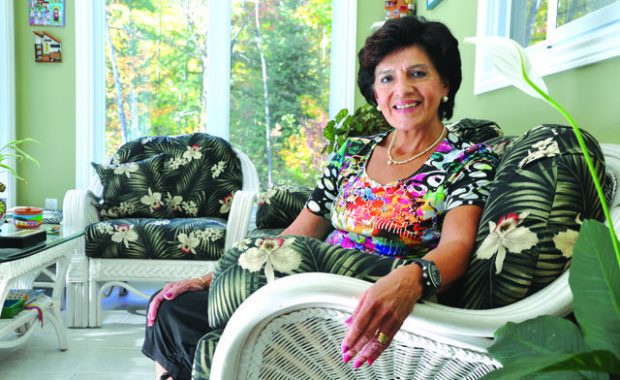COMBERMERE – A Combermere woman from a democratic family survived Venezuela’s political turmoil and lived to brush shoulders with some of the world’s most rich and powerful.
The surname Ruiz-Pineda is everywhere in Venezuela, from the names of towns to the names of subway stations and library buildings.
It belonged to the legendary activist Leonardo Ruiz-Pineda, a man who fought for freedom and democracy all of his life. He was one of the founders of the Acción Democrática, or Democratic Party of Venezuela.
Now, when Combermere’s Magda Ruiz-Pineda travels back to her home country, she is often questioned if she has a connection to the renowned activist who campaigned against dictatorship.
She certainly does. In fact, Leonardo was her father.
“Our whole life has been very political,” Magda admitted.
Born in San Cristobal, a Venezuelan city located on the border of Columbia in the province of Tachira, Magda was the first child to Leonardo and Aurelena. Her father was the governor of the province and when she was two years old, the family moved to Caracas after her father was appointed as vice-minister of communications at the ministry of communications.
That same year in 1948, the government was ousted by a coupe d’etat lead by military officers. It resulted in a dictatorship in the country, something Leonardo strongly opposed.
“He was always fighting to have Venezuela back as a democratic and free country,” Magda explained.
Since he was a leader with the Democratic Action Party, Magda’s father was jailed for almost six months and afterwards, the family was essentially homeless. Between 1948 and 1952, they had to hide at their friend’s homes and even changed their names to avoid being jailed by the military again.
“I do remember many times spent with my father and even remember one time we had to hide inside a closet as he thought the government police were searching the house where we were hiding,” Magda recalled.
Oftentimes, the family was separated. Leonardo did not even get a chance to see the birth of his second daughter Natacha in 1949. Since he was in hiding, he had to wait one month to see her.
Authorities got more aggressive and ordered for Leonardo to be found, dead or alive. Tragically, on October 21, 1952, Magda’s father was assassinated by the military on a street in Caracas.
“The morning after, my mother, fearing something bad had happened to my father, sent somebody to buy the newspaper,” Magda remembered. “It was a great shock when she saw on the front page a large picture of my father laying in a pool of blood on the ground.”
Magda was only six years old at the time.
Aurelena went to the ministry of affairs to claim the body, but Leonardo had already been buried. She was immediately questioned and detained and spent the next three months in prison.
“I still remember those times I visited mom in prison,” Magda said.
Once she was released from jail, the family was sent into exile to Spain, where they remained for six months. Afterwards, they went to New York City and eventually ended up to Mexico City where they remained for four years.
It was a place many Venezuelans, who were associated with the democratic ideology, were sent into exile.
Alone with two small children, Aurelena rekindled with Alejandro Ferrer, a friend of Leonardo’s. The two married in Mexico City in 1954 and shortly after, Magda’s brother, Alex, was born.
The girls attended school in Mexico and learned the Mexican National Anthem before the Venezuelan one.
The family had the chance to return to Venezuela as free citizens in 1958, when the dictator was forced out of power. A year after, Magda’s sister, Carmen Delia was born.
See more in the October 9, 2013 issue of The Valley Gazette.
